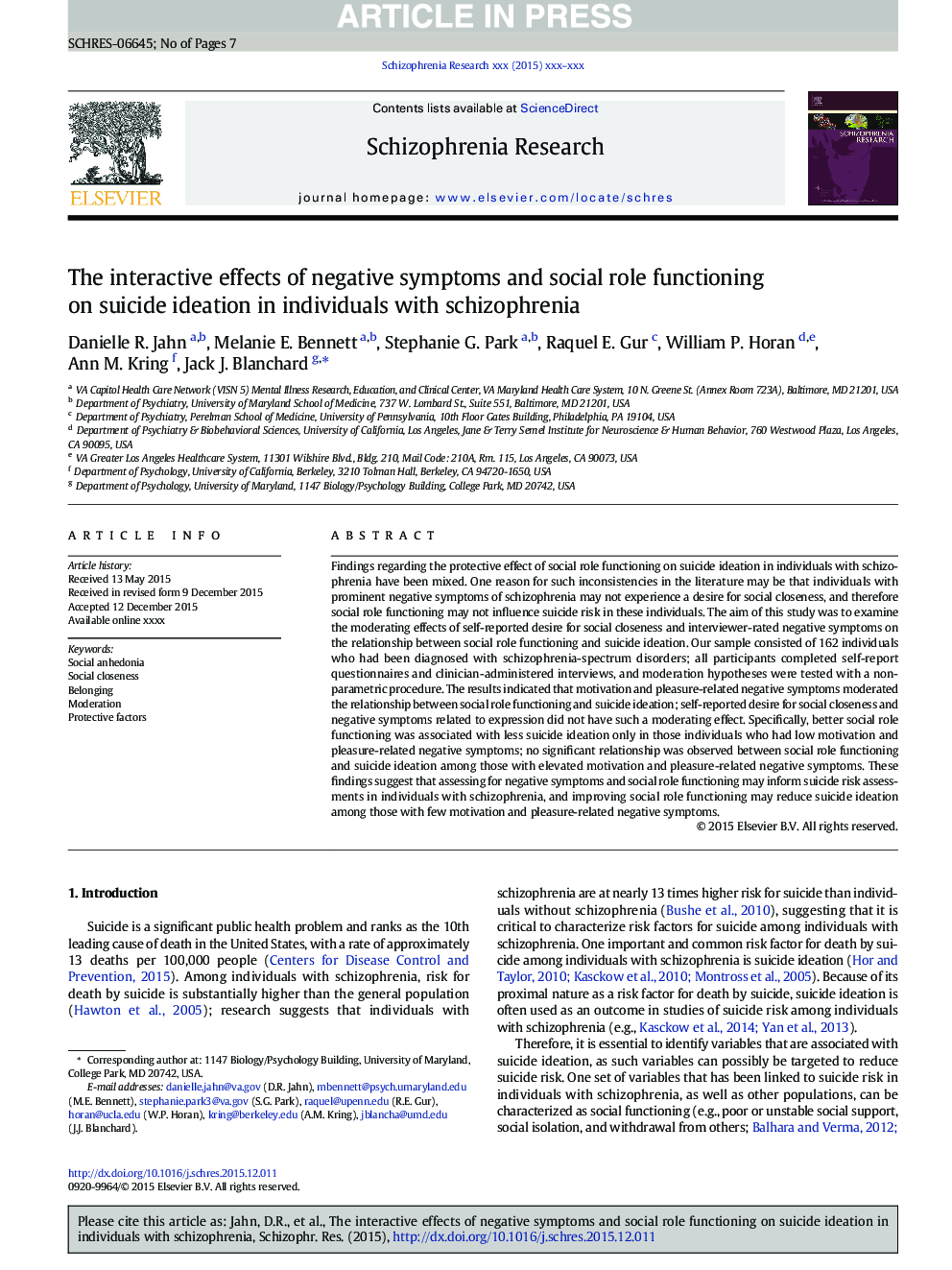| Article ID | Journal | Published Year | Pages | File Type |
|---|---|---|---|---|
| 6823236 | Schizophrenia Research | 2016 | 7 Pages |
Abstract
Findings regarding the protective effect of social role functioning on suicide ideation in individuals with schizophrenia have been mixed. One reason for such inconsistencies in the literature may be that individuals with prominent negative symptoms of schizophrenia may not experience a desire for social closeness, and therefore social role functioning may not influence suicide risk in these individuals. The aim of this study was to examine the moderating effects of self-reported desire for social closeness and interviewer-rated negative symptoms on the relationship between social role functioning and suicide ideation. Our sample consisted of 162 individuals who had been diagnosed with schizophrenia-spectrum disorders; all participants completed self-report questionnaires and clinician-administered interviews, and moderation hypotheses were tested with a non-parametric procedure. The results indicated that motivation and pleasure-related negative symptoms moderated the relationship between social role functioning and suicide ideation; self-reported desire for social closeness and negative symptoms related to expression did not have such a moderating effect. Specifically, better social role functioning was associated with less suicide ideation only in those individuals who had low motivation and pleasure-related negative symptoms; no significant relationship was observed between social role functioning and suicide ideation among those with elevated motivation and pleasure-related negative symptoms. These findings suggest that assessing for negative symptoms and social role functioning may inform suicide risk assessments in individuals with schizophrenia, and improving social role functioning may reduce suicide ideation among those with few motivation and pleasure-related negative symptoms.
Related Topics
Life Sciences
Neuroscience
Behavioral Neuroscience
Authors
Danielle R. Jahn, Melanie E. Bennett, Stephanie G. Park, Raquel E. Gur, William P. Horan, Ann M. Kring, Jack J. Blanchard,
